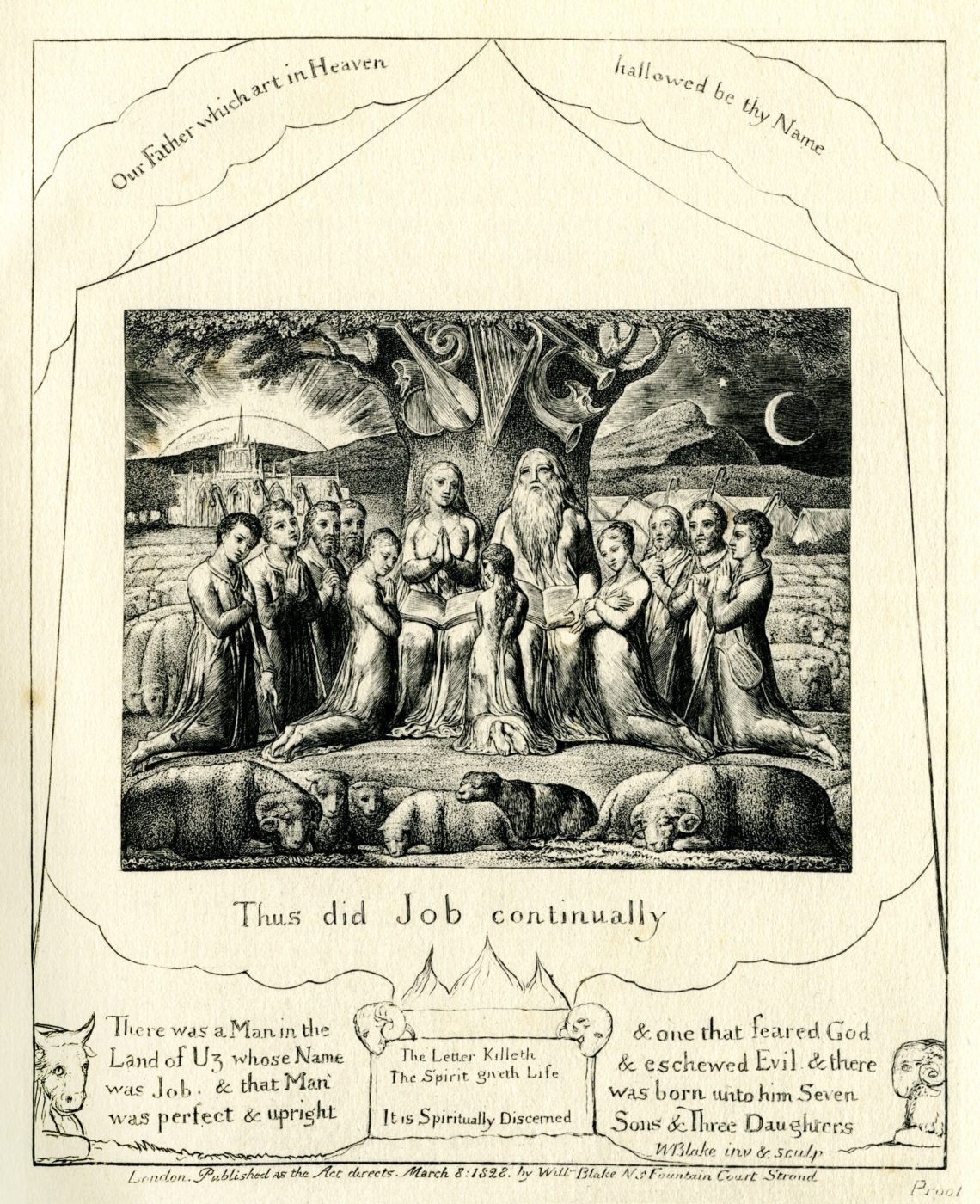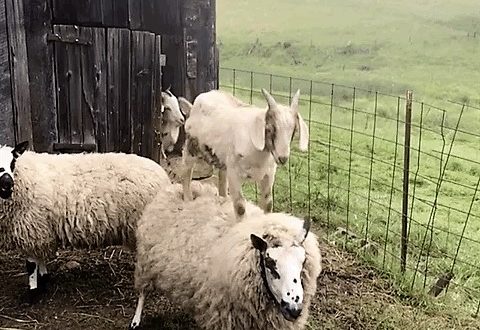
Job and Our Suffering
Last week at a small Bible study group of four women, we chose the Book of Job to study for the next few weeks. When I began to read it I wondered why I was so interested in studying a book full of relentless suffering. It was difficult just to read the first few chapters. Take a look at the above engraving by William Blake. This is how Job begins — prosperous — a big family, great riches and lots of animals.
Shortly after we began the book, there was an OP-ED on Saturday, September 26th in the NY Times. The title was ” How Can We Bear This Much Loss?” The writer– Amitha Kalaichandran– is a female physician and writer about medicine and healing. She makes the connection between the pandemic and the Book of Job. In a nutshell, Job is about having much, losing it all, and then receiving more back from God. She writes that grief is about letting go of attachments. Job has to do this and we, too, will also confront our own letting-go.
I have a friend named Sam who delivers my NY Times everyday. We have become good friends and often speak in the early hours of the morning. When we speak, he’s in his car and I am on the sidewalk. He works hard – up at by 2:00am to begin folding and delivering the newspapers, and then home for some sleep. At 1:00pm in the afternoon he gets up to go to his second job as a truck driver. Yesterday morning he told me he had an ulcer and he might have to decrease some of his work hours.
I texted him a diet rich in raw fruits and vegetables and greens. Today I gave him some produce and organic bread along with vegetarian soup. Sam is not Job. But Sam is one of millions of humans who are trying to stay ahead of this virus by continuing to work in the middle of the pandemic. They can not work remotely.
I can live with canceled trips and missed birthdays and delayed weddings. However, we must not forgot those who are dealing with real loss and hardship. And we must remember that we are lucky if we are able to choose when we go out and when we stay in. And finally, in the spirit of the Divine mystic Dame Julian of Norwich, who lived and suffered in Norwich during the Black Death, we should try to remember:
“All shall be well, and all shall be well and all manner of thing shall be well.”
― Julian of Norwich




